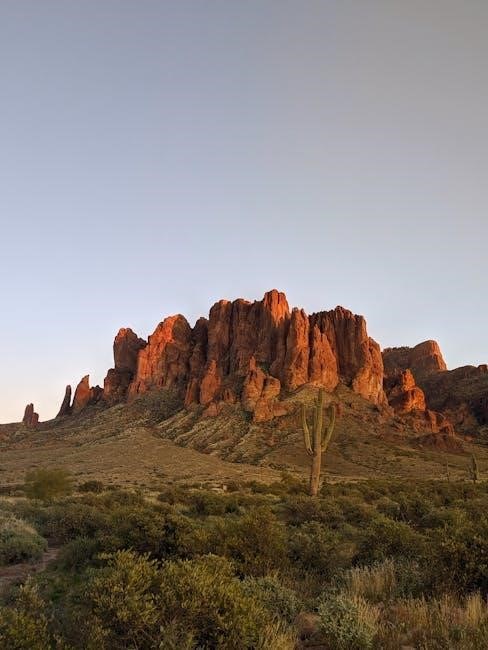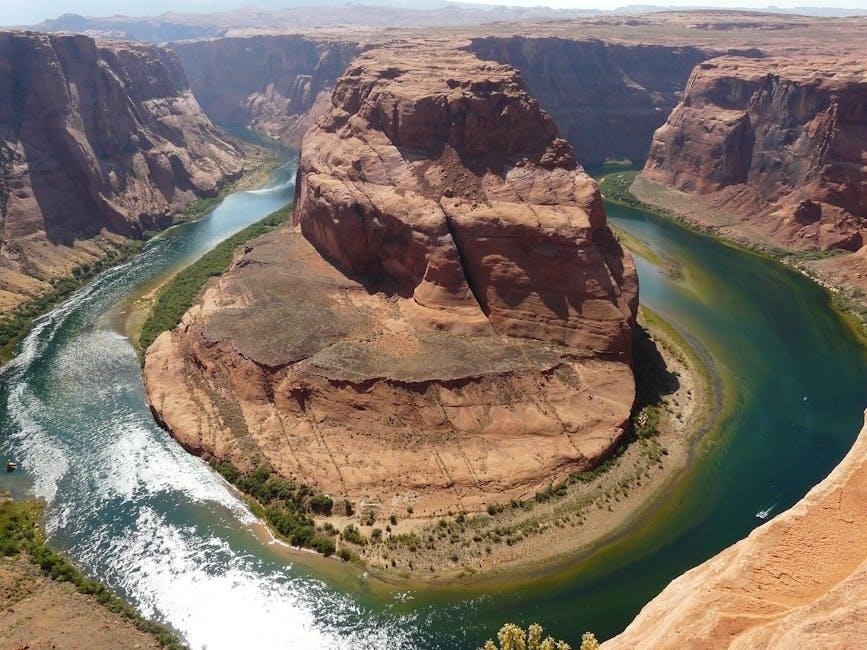arizona last will and testament pdf
Okay‚ here is some content for the first section of the article about Arizona Last Will and Testament:

Arizona Last Will and Testament: A Comprehensive Guide
Planning for the future is crucial‚ and an Arizona Last Will and Testament ensures your wishes are honored. This guide offers insights into creating a valid will‚ protecting your assets‚ and providing for loved ones.
Okay‚ here is some content for the second section of the article about Arizona Last Will and Testament:
What is an Arizona Last Will and Testament?
An Arizona Last Will and Testament is a legally binding document that communicates your desires regarding the distribution of your assets after your death. It’s a fundamental tool for estate planning‚ allowing you‚ the testator‚ to direct how your property—personal‚ digital‚ and real—will be allocated to your chosen beneficiaries.
This document‚ governed by Title 14 of the Arizona Revised Statutes‚ enables you to appoint an executor to manage your estate‚ ensuring your wishes are carried out efficiently. It also allows you to nominate a guardian for minor children‚ specifying their care and upbringing in your absence. A properly executed will avoids intestacy‚ where state law dictates asset distribution‚ potentially conflicting with your preferences. In essence‚ an Arizona Last Will and Testament provides peace of mind‚ knowing your legacy will be managed according to your instructions.
Okay‚ here is some content for the third section of the article about Arizona Last Will and Testament:
Purpose of a Will in Arizona
The primary purpose of a will in Arizona is to clearly define how your assets will be distributed after your passing. Without a will‚ the state’s intestacy laws determine who inherits your property‚ potentially leading to unintended outcomes. A will allows you to designate specific beneficiaries for particular assets‚ ensuring your loved ones receive what you intend for them.
Beyond asset distribution‚ a will serves other crucial purposes. It enables you to appoint an executor to manage your estate‚ simplifying the probate process for your family. Furthermore‚ if you have minor children‚ a will allows you to nominate a guardian‚ providing for their care and well-being. It can also establish trusts and manage digital assets. In short‚ an Arizona will is a vital tool for controlling your legacy and protecting your family’s future.
Okay‚ here is some content for the fourth section of the article about Arizona Last Will and Testament:
Legal Requirements for a Valid Will in Arizona
To be legally sound in Arizona‚ a will must meet specific requirements as outlined in the Arizona Revised Statutes. First‚ the testator‚ the person making the will‚ must be at least 18 years old and of sound mind‚ meaning they understand they are creating a document that dictates the distribution of their assets after death;
The will must be in writing and signed by the testator‚ or by someone signing on their behalf under their direction and in their presence. Furthermore‚ the signing must be witnessed by at least two credible individuals‚ who must also sign the will in the testator’s presence. These witnesses attest to the testator’s signature and mental capacity at the time of signing. Failure to adhere to these requirements can invalidate the will‚ leading to potential legal challenges during probate.
Okay‚ here is some content for the fifth section of the article about Arizona Last Will and Testament:
Key Components of an Arizona Will
A comprehensive Arizona will should include testator information‚ beneficiary designations‚ executor appointment‚ asset distribution details and‚ if applicable‚ guardianship provisions for minor children. These elements ensure clarity and legal validity.
Okay‚ here is some content for the fifth section of the article about Arizona Last Will and Testament:
Testator Information
The testator‚ the person creating the will‚ must provide their full legal name‚ current address‚ and county of residence within Arizona. Accurate identification is critical to establish the document’s legitimacy. The will should clearly state that the testator is of sound mind and acting voluntarily‚ without coercion or undue influence.
Including the testator’s marital status is also essential. If married‚ the will should reference the spouse’s name and address. Any prior wills should be explicitly revoked to avoid confusion and potential legal challenges. Furthermore‚ the testator should affirm their understanding of the document’s purpose: to direct the distribution of their assets after death‚ as per Arizona law.
Providing this detailed personal information at the beginning of the will sets a clear foundation for all subsequent provisions and helps to minimize any ambiguity that could arise during probate.
Okay‚ here is some content for the sixth section of the article about Arizona Last Will and Testament:
Beneficiary Designation
Clearly identifying beneficiaries is paramount in an Arizona Last Will and Testament. For each beneficiary‚ provide their full legal name‚ address‚ and relationship to the testator. Ambiguity can lead to legal disputes and delays in asset distribution‚ so precision is essential. If a beneficiary is a minor‚ specify their date of birth and consider naming a custodian to manage their inheritance until they reach adulthood.
Consider including contingent beneficiaries. These individuals will inherit assets if the primary beneficiary predeceases the testator. This prevents assets from being distributed according to Arizona’s intestacy laws‚ which may not align with the testator’s wishes. Specify the exact assets or percentage of the estate each beneficiary will receive.
For charitable organizations‚ include their full legal name‚ address‚ and tax identification number to ensure proper allocation and avoid any potential challenges to the bequest. Regularly review and update beneficiary designations to reflect life changes such as births‚ deaths‚ marriages‚ or divorces.
Okay‚ here is some content for the seventh section of the article about Arizona Last Will and Testament:
Executor Appointment
Appointing an executor in your Arizona Last Will and Testament is a critical decision. The executor is responsible for managing your estate‚ paying debts‚ and distributing assets to beneficiaries. Choose someone trustworthy‚ organized‚ and capable of handling financial matters. Obtain their consent before naming them‚ as the role involves significant responsibility and time commitment.
Clearly state the executor’s full legal name and contact information in your will. Consider naming a successor executor in case your primary choice is unable or unwilling to serve. Define the scope of the executor’s powers‚ ensuring they have the authority to manage assets‚ pay expenses‚ and make necessary decisions for the estate’s administration.
Arizona law outlines specific duties and responsibilities for executors. The will can provide additional guidance or instructions‚ but it must comply with state regulations. The executor is entitled to compensation for their services‚ which is typically a percentage of the estate’s value or a reasonable hourly rate‚ as approved by the court.
Okay‚ here is some content for the eighth section of the article about Arizona Last Will and Testament:
Asset Distribution
Clearly outlining asset distribution is paramount in your Arizona Last Will and Testament. Specify how your property‚ including real estate‚ personal belongings‚ financial accounts‚ and digital assets‚ should be divided among your beneficiaries. Be precise in your descriptions to avoid ambiguity and potential disputes. For real estate‚ include the full legal address. For financial accounts‚ provide the bank name and account numbers.
Consider creating a detailed list of personal belongings and their intended recipients. You can reference this list in your will or create a separate document. Address any potential tax implications associated with asset transfers. Consult with a tax professional to understand the impact on your estate and your beneficiaries.
Think about including contingency plans for situations where a beneficiary predeceases you. You can specify that their share should go to their descendants or be divided among the remaining beneficiaries. Regularly review and update your asset distribution plan to reflect any changes in your circumstances or relationships.
Okay‚ here is some content for the ninth section of the article about Arizona Last Will and Testament:
Guardianship for Minor Children
If you have minor children‚ your Arizona Last Will and Testament is the place to nominate a guardian who will care for them if you and the other parent are unable to do so. This is one of the most critical decisions you’ll make in your will. Carefully consider who would be best suited to raise your children‚ taking into account their values‚ lifestyle‚ and ability to provide a stable and loving home.
It’s wise to name an alternate guardian in case your first choice is unable or unwilling to serve. Discuss your decision with the proposed guardian(s) to ensure they are willing to accept the responsibility. While the court has the final say‚ your nomination carries significant weight.
Consider including provisions for financial support of your children’s guardian. This could involve setting up a trust to provide funds for their care‚ education‚ and well-being. Regularly review and update your guardianship nominations as your children grow and circumstances change.
Okay‚ here is some content for the tenth section of the article about Arizona Last Will and Testament:

Creating and Executing Your Will
Creating and executing your Arizona will involves drafting the document‚ adhering to legal signing requirements‚ and considering a self-proving affidavit to simplify the probate process later on.
Okay‚ here is some content for the tenth section of the article about Arizona Last Will and Testament:
Downloading a Template (PDF)
Securing an Arizona last will and testament template in PDF format is a convenient first step in estate planning. These templates offer a structured framework‚ guiding you through essential sections such as asset distribution‚ beneficiary designation‚ and executor appointment. Many websites provide free‚ downloadable templates tailored to Arizona law.
Using a template ensures you address key legal requirements specific to Arizona‚ potentially saving time and legal fees. Remember that you’ll need to personalize the template with your specific details and circumstances‚ including your full legal name‚ address‚ and a comprehensive list of assets.
While templates are helpful‚ consulting with an attorney is advisable to ensure your will accurately reflects your wishes and complies fully with Arizona statutes. It is very important that all parties are in agreement.
Okay‚ here is some content for the eleventh section of the article about Arizona Last Will and Testament:
Signing and Witnessing Requirements (ARS 14-2502)
Arizona law‚ specifically ARS 14-2502‚ dictates the precise requirements for signing and witnessing a last will and testament to ensure its validity. The testator‚ the person making the will‚ must sign the document‚ or acknowledge their signature‚ in the presence of two credible witnesses. These witnesses must also sign the will in the testator’s presence.
It’s crucial that witnesses are not beneficiaries named in the will to avoid any potential conflict of interest. Proper adherence to these rules ensures the will is legally sound and can be upheld in probate court. Failure to comply with ARS 14-2502 could lead to the will being deemed invalid‚ potentially disrupting your estate plan. In cases of uncertainty‚ it’s always best to seek guidance from an attorney.
Okay‚ here is some content for the twelfth section of the article about Arizona Last Will and Testament:
Self-Proving Affidavit (ARS 14-2504)
To further solidify the validity of your Arizona Last Will and Testament‚ consider adding a self-proving affidavit‚ as outlined in ARS 14-2504. This affidavit is a sworn statement‚ signed by the testator and the witnesses before a notary public‚ affirming that the will was properly executed. It streamlines the probate process by eliminating the need for witnesses to testify in court regarding the will’s authenticity.
The affidavit confirms that the testator signed the will willingly and that the witnesses were present during the signing. Including a self-proving affidavit can save time and resources for your loved ones during a difficult period. While not mandatory‚ it’s highly recommended for a smoother estate administration. Consult with a legal professional to ensure the affidavit complies with Arizona law and is correctly executed.
Okay‚ here is some content for the tenth section of the article about Arizona Last Will and Testament:

Modifying or Revoking a Will
Life circumstances change‚ and your Arizona Last Will and Testament should reflect those changes. You can modify your will through a codicil‚ which is an amendment or addition to your existing will. The codicil must be executed with the same formalities as the original will‚ including signing and witnessing‚ to be valid.
Alternatively‚ you can revoke your entire will‚ rendering it void. This can be done by physically destroying the will (burning‚ tearing‚ or otherwise defacing it) with the intent to revoke it‚ or by creating a new will that explicitly revokes all prior wills. It’s crucial to clearly express your intent to revoke the previous will. If you remarry after creating a will‚ Arizona law may grant your new spouse certain rights‚ potentially impacting your existing will. Consult an attorney to ensure your will accurately reflects your current wishes and complies with Arizona law. Reviewing your will periodically is essential to account for life events.
Okay‚ here is some content for the eleventh section of the article about Arizona Last Will and Testament:

Where to Find Arizona Will Templates (PDF)
Several online resources offer Arizona Last Will and Testament templates in PDF format. These templates can provide a starting point for drafting your will‚ but it’s essential to carefully review and customize them to fit your specific circumstances and comply with Arizona law. Many legal websites offer free or low-cost templates designed for Arizona residents.
Be cautious when using free templates‚ as they may not always be up-to-date or tailored to your unique needs. Consider using reputable legal document services or consulting with an attorney to ensure the template is valid and suitable for your situation. Look for templates that include clear instructions and guidance on completing each section. Remember to verify that the template complies with Arizona’s statutory requirements for wills‚ including the necessary signing and witnessing procedures. A well-drafted template can save time‚ but professional advice is recommended for complex estates.
